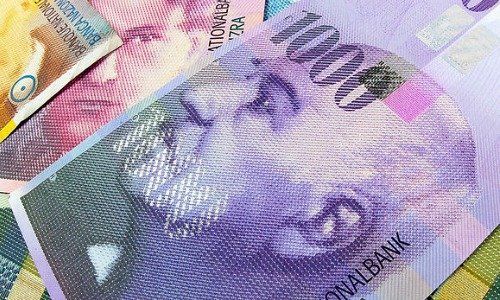The world's ultra-rich are still hoarding more than one third of their fortune in cash – an ominous sign for private banks.
Ten years after the dawn of the financial crisis, the wealthy and ultra-rich are still too anxious to return to stock- and bond-picking, according to a new study.
The ultra-wealthy, usually defined as those with at least $50 million to bank, often stow as much as 35 percent of their money in cash, according to a study carried out by Swiss bank UBS.
This spells disaster for private banks, which rely on the wealthy to regularly turning their portfolios over and taking up sophisticated products tailored by an army of investment specialists.
Less Than Inflation
Cash has produced a modest 1.1 percent annualized return in the last ten years, but unlike crisis-era investments in failing tech stocks or imploding hedge funds, have not produced losses.
The preference for a return that hasn't even matched the rate of global inflation in recent years is a striking reminder of just how investment-shy even the most sophisticated of investors still are.
The ultra-rich typically have their own investment vehicles such as family offices, and they command the most intensive of care from firms such as Credit Suisse or Citigroup: they have their own credit cards and their own rarified Facebook.
Costly Ultra-Rich Units
Private banks have in recent years spent millions equipping ultra-high net worth units with former investment bankers to tailor-make investment products to meet sophisticated investment needs.
The study is also a stark admission that private banks are sitting on considerable costs to keep the ultra-rich units going, without being able to generate enough revenue out of them.
«Different rules apply when investing great wealth,» said Simon Smiles, UBS' investment chief for the ultra-high net worth segment, which has also been drawn towards physical assets like luxury goods, property or gold in recent years as opposed to financial products.
Trading Squeeze
The super-wealthy have access to private investments. They are also, by virtue of their great wealth, freer to pursue lucrative illiquid strategies that can be had cheaply – something the merely affluent cannot afford to the same extent.
The ultra-rich can even step in on investment and trading opportunities that banks have abandoned because stricter capital rules have eaten into their profits, UBS argues.
Clients hoarding cash has been a theme since the 2008-09 financial crisis, when hiding money under the mattress became en vogue again.
The ultra-rich are meant to be more sober and less emotional investors than the merely wealthy or affluent – a sort of leading indicator.
Love Affair With Cash
Their continuing love affair with big cash piles is an ominous sign for private banks trying to squeeze more revenue out of their other wealth segments. If private banks are failing to entice the world's richest back to the market, then what hope do they have for their affluent and rich segments? No wonder UBS is saying «no, thank you» to some new clients.
The European Central Bank stopped printing the 500 euro note last year, ostensibly to help tackle crime. But larger notes are also beloved for hoarding: just 10 percent of Switzerland's 1000 Swiss franc notes are in circulation.
The high proportion of large denominations indicates that banknotes are used not only as a means of payment but also – to a considerable degree – as a store of value,» the Swiss central bank said.

























